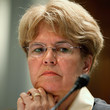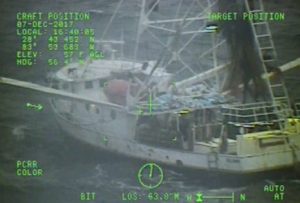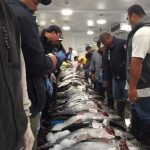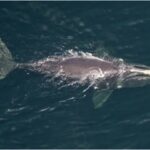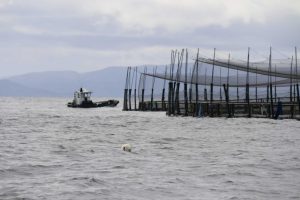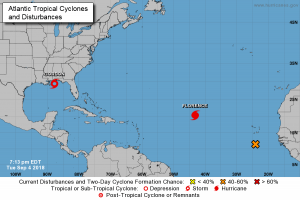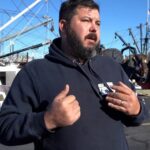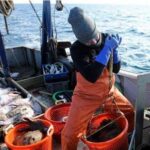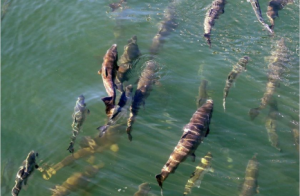Tag Archives: magnuson-stevens-act
NOAA N.E. chief eyes delay on limits
The New England Fishery Management Council approved the proposal from the Gloucester-based coalition at its special meeting Wednesday in Wakefield. The move came in conjunction with a decision to defer setting catch limits for the groundfishery until the regularly scheduled January meeting – a time frae tha would benefit from a benchmark Gulf of Maine stock assessment and the vetting of it by the council’s Science and Statistical Committee. The coalition wrote last Monday to the council laying out a legal theory derived from an interpretation of the Magnuson-Stevens Act by NOAA last year that became the basis of a one-year interim emergency action on inshore cod that kept the reduction in landings to 22 percent. Read more
Fishing regulators delay vote on catch cuts
The council voted 15-2 to delay a vote until its next meeting, Jan. 29-31. Proposed allocations for the year starting May 1 have been cut drastically, 75 percent for some species. A Groundfish Committee proposal that would have replaced those cuts with an across-the-board cut of 10 percent of the 2012 landings was declared out of order by council Chairman C. M. “Rip” Cunningham. He said it wouldn’t satisfy the requirements of the Magnuson-Stevens Act that governs fishing and could never be accepted by the National Oceanic and Atmospheric Administration. The proposal had already been sideswiped by Peter Shelley, senior counsel for the Conservation Law Foundation, for the same reason. He threatened a lawsuit, drawing boos from the packed hall where about 150 New England fishermen faced down the council. About 20 people from Greater New Bedford were among those in attendance.
Much of Thursday’s meeting dealt with the flawed science used to make quota decisions, especially the data collected by the research vessel Bigelow. Seafood consultant Jim Kendall, of New Bedford, along with council member John Quinn, of Dartmouth, ridiculed NOAA for making decisions with nothing but poor science, speculation and guesswork.
The Bigelow’s data on yellowtail flounder has resulted in a dramatic cut in quota for next year, which could well shut down the Gulf of Maine fishery. But the fishermen insisted the Bigelow was taking test trawls in places where they knew there would be no fish and avoided the places where there were fish.
The council did adopt a motion to allow fishing in some areas that have been closed to groundfishing for 22 years. This angered the environmental representatives, both Shelley and Oceana’s Gib Brogan. Read More
U.S. Reopens Waters Off New England for Fishing – NYT
Jud Crawford, the science and policy manager for the Pew Environment Group’s Northeast Fisheries program, said the decision to reopen protected waters could have dire consequences. “One of the concerns is that we will very quickly lose some very important breeding stock in these places,” Mr. Crawford said. The council’s vote is subject to approval by the National Oceanic and Atmospheric Administration’s Fisheries Program, which is expected to act by May. Read More
Fish panel holds off on limit cuts – “I say if you’re going to take 1 damn percent (more), shut the whole God damn thing down!”
 New England fishing regulators Thursday delayed voting on a series of significant cuts to fishermen’s 2013 allowable catch in groundfishing stocks after repeated and emotional warnings that the reductions would finish off an industry already grappling with a federally recognized economic “disaster.” The New England Fishery Management Council voted 15-2 to put off deciding on new catch limits for various bottom-dwelling groundfish species until their next meeting, scheduled for the end of January. Read More
New England fishing regulators Thursday delayed voting on a series of significant cuts to fishermen’s 2013 allowable catch in groundfishing stocks after repeated and emotional warnings that the reductions would finish off an industry already grappling with a federally recognized economic “disaster.” The New England Fishery Management Council voted 15-2 to put off deciding on new catch limits for various bottom-dwelling groundfish species until their next meeting, scheduled for the end of January. Read More
Your View: Fishery council must reject unreliable assessments – By Richard Canastra – southcoasttoday
I nearly always attend New England Fishery Management Council meetings in person, but last month, I was unable to attend the meeting in Newport, and instead listened to the proceedings online. I found that listening, and not physically being there, gives you a different perspective on a meeting. You hear more intently. There are fewer distractions. Examples seem clearer. Patterns emerge. There are some predictable patterns in life. When there is an accident, at the end of the traffic jam you find a police officer. When you go to a restaurant, at the end of dinner the bill comes. And when you attend a fisheries management council meeting that is dealing with a crisis, there is usually a bad stock assessment.
Bad stock assessments have become as predictable as the sunrise. Read More
Share and Share Alike
As a citizen advocate of the fishing industry, I have no confidence in NOAA stock assessments.
I spend a lot of time reviewing material, attempting to convey the results to as many people possible.
These listening sessions allow, as Mr Canastra stated, patterns to emerge.
The patter of Bill Karp, and Sam Rauch deviates not from the typical bureaucratic structure, much to my disappointment after listening to them from various venues, and reading a lot of information.
The revelations of the Georges Bank Yellowtail Flounder Working Group Meeting May 23, 2012, are the foundation of my opinion to condemn the stock assessments as a tool for fishery management, while enforcing Mr Canastras belief that the proper equipment is not being utilized to sample yellow tail flounder abundance.
As stated, patterns have emerged. The pattern of over looking details that have detrimental affects on stock assessments and confidence in them.
At the The New England Fishery Management Council’s three-day meeting in Plymouth Ma on 9/25/2012, a major detail confirmed the retrospective patter of no confidence in stock assessments conducted by NOAA.
During the 54th Stock Assessment Workshop (SAW)/Stock Assessment Review Committee (SARC) Meetings, a fisherman asked a question that received a hollow shrug of the shoulders answer that I find alarming, and telling that these assessments are substandard and incomplete.
The question was, “why is there no mention of herring as a predator species” in the ground fish assessment?
The answer. ” The SSC was, ah, not presented, ah, ah herring as a, ah, predator species….”
Yes. A Retrospective Pattern of the science used to mismanage this industry is established.
No confidence.
NOAA region chief Bullard hedges on interim limits
The coalition theory was based on an interpretation of the Magnuson-Stevens Act for building a second year of relief — “reducing” rather than “ending” overfishing — while a plan to bring the stock to maximum sustainable yield is crafted.,“I’m not going to opine on whether you can squeeze another year out of (the Magnuson regulations),” Bullard said in a Thursday interview at the Times. “We’re willing to take a look at this at the meeting.” Read More
Rep. Antonio F.D. Cabral-Fishing industry needs research money as well as disaster relief
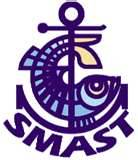 The elections may be over, but the current Congress still has work to do…..We need reliable, independent science. And Massachusetts is best equipped to provide it….That’s because there has not been adequate, sustained funding for independent research centers…..environment using scientific evidence that is, by its own scientists’ admission, often unspecific, unproven and unreliable. NOAA has been put in the position of acting not only as judge and jury, but as prosecution, defense and expert witness…..In particular, the School for Marine Science and Technology (SMAST) at UMass Dartmouth is uniquely suited to provide this research. SMAST has an ideal location as well as a history of fostering positive collaboration between all fishing stakeholders. SMAST can also boast a proven record of success in fishery research. In the 1990s the scallop industry was on the verge of collapse when SMAST pioneered new research on a very tight budget that proved the scallop population wasn’t devastated, http://www.southcoasttoday.com/apps/pbcs.dll/article?AID=/20121118/OPINION/211180303
The elections may be over, but the current Congress still has work to do…..We need reliable, independent science. And Massachusetts is best equipped to provide it….That’s because there has not been adequate, sustained funding for independent research centers…..environment using scientific evidence that is, by its own scientists’ admission, often unspecific, unproven and unreliable. NOAA has been put in the position of acting not only as judge and jury, but as prosecution, defense and expert witness…..In particular, the School for Marine Science and Technology (SMAST) at UMass Dartmouth is uniquely suited to provide this research. SMAST has an ideal location as well as a history of fostering positive collaboration between all fishing stakeholders. SMAST can also boast a proven record of success in fishery research. In the 1990s the scallop industry was on the verge of collapse when SMAST pioneered new research on a very tight budget that proved the scallop population wasn’t devastated, http://www.southcoasttoday.com/apps/pbcs.dll/article?AID=/20121118/OPINION/211180303
Fish panel snubs U.S., Canada limits Gloucester Daily Times
 NOAA’s New England Fishery Management Council Wednesday heaped derision on a joint assessment of yellowtail flounder conducted jointly by U.S. and Canadian scientists, then trashed the minuscule allocation of the stock based on work that even the agency’s chief regional scientist declined to defend, except to say it was the best “available” and therefore binding. http://www.gloucestertimes.com/topstories/x179000228/Fish-panel-snubs-U-S-Canada-limits
NOAA’s New England Fishery Management Council Wednesday heaped derision on a joint assessment of yellowtail flounder conducted jointly by U.S. and Canadian scientists, then trashed the minuscule allocation of the stock based on work that even the agency’s chief regional scientist declined to defend, except to say it was the best “available” and therefore binding. http://www.gloucestertimes.com/topstories/x179000228/Fish-panel-snubs-U-S-Canada-limits
FLASHBACK! John Kerry – “Lubchenco is your friend,” February 2010 To leave the Fish Wars as Secretary of Defense?
Kerry released the following statement to the Times yesterday in response to a request about his position on Magnuson. “The status quo isn’t working, and I say that as someone who is passionate about the environment, but who can see plainly that people are hurting and there are legitimate issues that have to be fixed. “I’m going to be talking with fishing and environmental experts at the state and federal level to develop sustainable fisheries in New England and work with the New England delegation, as I always have, to keep federal assistance flowing into Massachusetts for our fishing families and to rebuild the fisheries.” http://www.gloucestertimes.com/local/x966804462/Kerry-to-fishermen-Lubchenco-your-friend
No offense Senator,,,,,,,,,,screw it, Senator Kerry, you thought then, as you do now, that its all about frittering out a few bucks to to the victims of President Obama’s US Commerce Department, the New England Fishing Industry. You have been ineffective Senator, and I’m done beating the drum for you. You have not delivered, Senator.
Please, John Kerry, just go away! http://bostonherald.com/news/columnists/view.bg?articleid=1061174640
Fish council eyes December for ’13 limits By Richard Gaines Staff Writer GDT
The New England Fishery Management Council has set a special one-day meeting Dec. 20 to take final action on most groundfish allocations for the 2013 fishing year that begins May 1, and take near final action on Framework 48 which updates and refines Amendment 16 and its catch share maagement system. The special meeting was spun off the November council meeting set for Newport, R.I., due to the welter of issues. http://www.gloucestertimes.com/local/x1499658911/Fish-council-eyes-December-for-13-limits
Economic relief needed for fishermen – US Senator Jeanne Shaheen
 In recent years, New Hampshire fishermen have seen their incomes decline as federal regulations designed to end overfishing have limited the amount of fish they can catch. To make matters worse, these often-onerous regulations haven’t helped the cod population rebound as expected. In fact, a 2011 scientific study by the National Marine Fisheries Service found so few codfish in the Gulf of Maine that the quota for the upcoming fishing year must be set extremely low — so low that it jeopardizes the survival of New Hampshire’s fishing industry. The Survey SUCKS!BH
In recent years, New Hampshire fishermen have seen their incomes decline as federal regulations designed to end overfishing have limited the amount of fish they can catch. To make matters worse, these often-onerous regulations haven’t helped the cod population rebound as expected. In fact, a 2011 scientific study by the National Marine Fisheries Service found so few codfish in the Gulf of Maine that the quota for the upcoming fishing year must be set extremely low — so low that it jeopardizes the survival of New Hampshire’s fishing industry. The Survey SUCKS!BH
http://www.seacoastonline.com/articles/20121021-OPINION-210210309
National Ocean Policy: A New Bureaucracy That Could Compromise Regional Fisheries Management By Stephanie Madsen
The most disappointing aspect of the Obama Administration’s relationship with the Pacific Northwest/Alaska commercial fishing industry is its rigid and inflexible approach in creating a National Ocean Policy (NOP). In July 2010, President Obama issued Executive Order 13547, formally establishing an ocean policy, creating new councils and committees throughout the federal government, and directing agencies to undertake a broad array of new oceans-related activities.
While the fishing and fish processing sectors could embrace many aspects of the NOP initiative, several aspects of the NOP are so unpalatable that we cannot support the policy going forward ,,,,,,,,Read More
Cape Cod’s fishermen fret over seals, dogfish and the future
Two areas, 35-miles south and 150-miles east of Chatham have been closed for cod and other groundfish but the National Marine Fisheries Service is contemplating re-opening to help fishermen because all fishermen are facing drastic cuts of 70 percent in cod and 73 percent in haddock on Georges Bank. But not all fishermen are enthused.
Then there’s this insight by someone who can’t be very smart.
Wholesaler Andy Baler of the Nantucket Fish Company noted that huge mid-water trawlers are catching tons of herring off shore while the National Marine Fisheries Service looks idly on. “Cod and haddock feed on local herring but they’re starving. That’s why you see fish so skinny,” he said. “The mid-water trawlers are going to suck every bit of bait out there. You have one management system for some fish and another management system that goes and kills all the fish they eat.” Bullard conceded the two plans are un-connected. NOAA takes a fish by fish approach. “This port is crushed. We’re living on a few dogfish,” Baler declared. “We need some help. Keep the herring here so we can fish the channel.”
Read more: Cape Cod’s fishermen fret over seals, dogfish and the future – – Harwich Oracle http://www.wickedlocal.com/brewster/newsnow/x1826353094/Cape-Cods-fishermen-fret-over-seals-dogfish-and-the-future#ixzz29O2eBrZ9
The relationship is this. The larvae of the bottom fish need to go to the surface of the ocean in order to obtain food – plankton – and light. While they go up, they become a feast for the pelagics. When those larvae that survive become codlThe relationship is this. The larvae of the bottom fish need to go to the surface of the ocean in order to obtain food – plankton – and light. While they go up, they become a feast for the pelagics. When those larvae that survive become codlings, they want to go back to their friends and relatives. While they descend to their native habitat, they become a second feast for the pelagics.
http://carmine3.newsvine.com/_news/2010/11/04/5408211-fish-and-future
Northeast Seafood Coalition issues statement on Accumulation Caps, Fleet Diversity, and “Amendment 18” – savingseafood.org
NSC believes any and all groundfish management measures must be highly sensitive to the potential for unintended consequences to all segments of this fragile fishery.
WASHINGTON (Saving Seafood) October 12, 2012 — On Wednesday, October 10, the Gloucester Daily Times reported that “NOAA’s regional administrator, joined by the Environmental Defense Fund,
the Pew Environment Group, the North Atlantic Marine Alliance and Food & Water Watch, is supporting a belated effort by the federal government to limit the accumulation of catch shares and thus provide
safeguards to smaller independent boats in the Northeast groundfishery…”
Editorial: Inshore cod assault cries out for catch share reforms GDT
The grim ineffectiveness of NOAA chief Jane Lubchenco’s catch share fishery management system as presently carried out in New England may never have been more apparent than this week, when even NOAA’s new regional administrator and the Environmental Defense Fund, which pushed this system from the start, came out in favor of making key reforms to it. http://www.gloucestertimes.com/opinion/x1684125865/Editorial-Inshore-cod-assault-cries-out-for-catch-share-reforms
NOAA regional chief, EDF back catch quota caps
http://www.gloucestertimes.com/topstories/x1618664521/NOAA-regional-chief-EDF-back-catch-quota-caps
Once again, the cart before the horse.
This should have been addressed before amendment 16 was rammed through. The EDF goal of Herr Lubchenco.
Yes, consolidation was occuring pre a-16, but then it really was free market driven consolidation.
Of course, the NSC syndicate likes it the way it is now, and why would’t they?
As far as “crossing the border” skirting the referendum vote, that has already taken place, the reason for the lawsuit.
For the syndicate to be concerned, is like Walmart saying they care about their employees, and they are looking out for their best interests! Why the parallel?
There are a whole bunch of fishermen not represented by the syndicate, that work within the syndicate. Crewmen that rely on the owners to do the right thing for them, as they share the expenses in the free enterprise lay/share arraingement of compensation, along with the owners. Crewmen now pay for leased quota with no representation, along with the regular expenses. They have become poorer and marginalized.
Only now is there a half assed effort to understand the system of compensation through a “socio economic survey” that should have been considered pre a-16.
I’m sure Johanna Thompson is a nice lady, but to read about EDFs concerns about fishermen? I find them amusing, and diingenuous following the history of EDFs actions, and knowing they recieve multi millions year in, year out from the Walton Foundation to privatize the resource.
Funny thing about the “socio” survey. All the current data collected already includes people like Johanna, regulators, and “stakeholders” involved in fishery issues.
Everyone except the fishermen!
ABOLISH CATCH SHARES NOW!
Signs of hope in fisheries management October 07, 2012 2:00 AM
When long-time Portsmouth Herald editor Ray Brighton wrote his definitive two-volume history in honor of Portsmouth’s 350th anniversary, he called it “They Came to Fish.” Fishing brought settlers to our shores and was a sustaining industry for centuries. When locals want to celebrate and when tourists come to the Seacoast they want to eat seafood: lobsters, steamers, quahog chowder, cod and haddock. It is the quintessential New England fare. Today our fishing fleet and associated industries are mere shadows of their former selves. Every year a few more fishermen give up the fight. The Yankee Fisherman’s Cooperative in Seabrook offers the last shore support for our decimated fleet. Distrust runs high among regulators, scientists and the fishermen who feed their families by their dangerous and backbreaking work at sea. http://www.seacoastonline.com/articles/20121007-OPINION-210070312
Crisis highlights running dispute over US fish law
Jay Lindsey once again tells us a portion of the story, and shame on Peter Baker for capitalizing on it, as is the usual for Peter Baker!
But Peter Baker of the Pew Environment Group said the law is not to blame for fish populations that have dwindled over decades, exactly what the law can fix. The law is pointed in the right direction, he said.
Have the stocks dwindled Peter Baker? And what would you base that assumption upon? The reliable trawl data of the NESC? You have the information that everyone else has that pays attention to these issue. Of course, you wouldn’t recognize the weaknesses when they conveniently favor your ENGO crusade. If there actually is plausibility to the data, and I say that with doubt, would you also recognize that herring would be included as a predator, along with an exploding population of seals, dogfish and skates, hindering any recovery? No you would not! I base that on your narrow-minded herring campaign which can’t seem to be capable of connecting any dots! Isn’t it convenient to say the 2008 trawl data was flawed, while the revelations of the NESC that they are not using the industry designed equipment for the trawl survey as was specified during the creation of it?
I am disappointed with another Jay Lindsey half story again, and am disgusted with the Pew network.
httphttp://www.berkshireeagle.com/northeastnews/ci_21717557/crisis-highlights-fish-law-dispute
NEFMC Considers New Rules That Could Allow Fishing in the NE Groundfish Closed Areas
PLYMOUTH, Mass. – Sept 27, The New England Fishery Management Council today took a step in the process to approve measures that could allow groundfish fishermen to harvest healthy stocks of fish 
from areas that have been closed to this fishery for decades.
Explicitly, the 18-member Council voted unanimously to support further analysis of a measure that calls for groundfish sectors, a type of harvesting cooperative established in 2010, to request exemptions from the longstanding prohibition on fishing in three year-round groundfish closed areas on a limited basis. These restrictions provide that:
Long-closed fishing areas may be reopened
PLYMOUTH — New England fishery managers have agreed to consider allowing fishermen back into areas that have been closed to them for decades. Such a move would give fishermen more access to healthy fish stocks and boost their businesses next year, when they face cuts in their catch so severe that it threatens the industry. The unanimous vote Thursday at a meeting of the New England Fishery Management Council came amid concerns about the environmental effects of reopening the three closed areas, located in the Gulf of Maine and Georges Bank. The year-round closures are intended to protect species of bottom-dwelling groundfish, such as cod, haddock and flounder. Some environmental groups vowed to vigorously oppose any re-openings. The council will consider giving final approval to measures to reopen the closed areas during its November meeting.
http://www.bostonherald.com/news/regional/view.bg?articleid=1061163717&srvc=news&position=recent
The environ kooks are pissed! Peter Shelly threatened a lawsuit! The rest of them chimed right in! National Standard 8, fellas.
EDF actually approves! Is this the beginning of an eco nut civil war? Getting my can of combustible fuel and bellows ready!
ISSUE BRIEF on HADDOCK: Mitigation Options and Underfishing our U.S. Quota – savingseafood.org
United States Georges Bank haddock, especially when compared to Canadian haddock from the same stock, is underfished. By “underfished,” we refer to the fact that US fishermen routinely fish significantly less than the scientifica lly determined total allowable catch.
lly determined total allowable catch.
Several regulatory barriers are preventing the successful exploitation of haddock, ultimately resulting in fishermen leaving hundred of millions of dollars in the ocean and the continuation of pressure on unhealthy stocks. There are a variety of precipitant factors influencing underfishing in the US:







